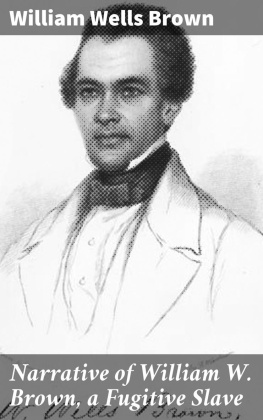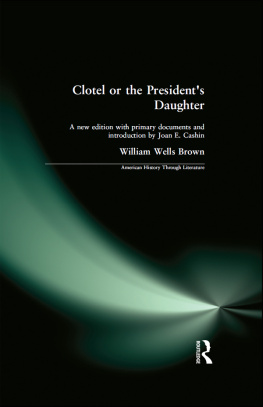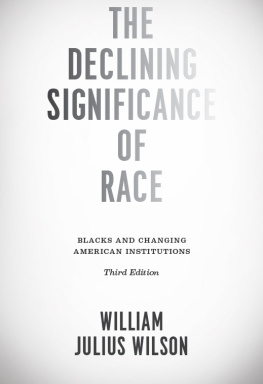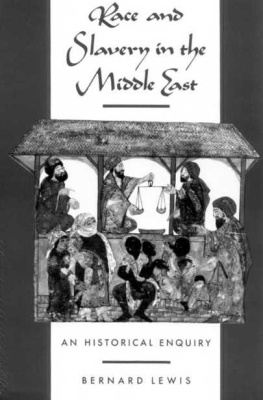THE BLACK MAN
William Wells Brown
PREFACE.
The calumniators and traducers of the Negro are to be found, mainly, among two classes. The first and most relentless are those who have done them the greatest injury, by being instrumental in their enslavement and consequent degradation. They delight to descant upon the "natural inferiority" of the blacks, and claim that we were destined only for a servile condition, entitled neither to liberty nor the legitimate pursuit of happiness. The second class are those who are ignorant of the characteristics of the race, and are the mere echoes of the first. To meet and refute these misrepresentations, and to supply a deficiency, long felt in the community, of a work containing sketches of individuals who, by their own genius, capacity, and intellectual development, have surmounted the many obstacles which slavery and prejudice have thrown in their way, and raised themselves to positions of honor and influence, this volume was written. The characters represented in most of these biographies are for the first time put in print. The author's long sojourn in Europe, his opportunity of research amid the archives of England and France, and his visit to the West Indies, have given him the advantage of information respecting the blacks seldom acquired.
If this work shall aid in vindicating the Negro's character, and show that he is endowed with those intellectual and amiable qualities which adorn and dignify human nature, it will meet the most sanguine hopes of the writer.
Cambridgeport, Mass. , 1863.
MEMOIR OF THE AUTHOR.
I was born at Lexington, Kentucky. My father, as I was informed, was a member of the Wickliffe family; my mother was of mixed blood; her father, it was said, was the noted Daniel Boone, and her mother a negress. My early life on the plantation was such as generally falls to the lot of the young slave, till I arrived at the age of nine years, when my position was changed. My master's brother lost his wife, she leaving an infant son a few months old, whom my mistress took to bring up. When this boy became old enough to need a playmate to watch over him, mistress called the young slaves together, to select one for the purpose. We were all ordered to run, jump, wrestle, turn somersets, walk on our hands, and go through the various gymnastic exercises that the imagination of our brain could invent, or the strength and activity of our limbs could endure. The selection was to be an important one, both to the mistress and the slave. Whoever should gain the place was in the future to become a house servant; the ask-cake thrown aside, that unmentionable garment that buttons around the neck, which we all wore, and nothing else, was to give way to the whole suit of tow linen. Every one of us joined heartily in the contest, while old mistress sat on the piazza, watching our every movementsome fifteen of us, each dressed in his one garment, sometimes standing on our heads with feet in the airstill the lady looked on. With me it seemed a matter of life and death; for, being blood kin to master, I felt that I had more at stake than my companions. At last the choice was made, and I was told to step aside as the "lucky boy," which order I obeyed with an alacrity seldom surpassed. That night I was put to soak, after which I was scraped, scrubbed, washed, and dried. The next day, the new suit came down to the quarters; I slipped into it; the young slaves gathered about me, and I was the star of the plantation. My mother, one of the best of mothers, placed her hands on my head, and, with tears in her eyes, said, "I knowed you was born for good luck, for a fortune-teller told me so when you was a baby layin' in your little sugar trough. Go up to de great house where you belong." With this blessing I bade farewell to the log hut and the dirt floor, and started towards the "big house." Mistress received me, and laid down the law which was to govern my future actions. "I give your young master over to you," said she; "and if you let him hurt himself, I'll pull your ears; if you let him cry, I'll pull your ears; if he wants any thing, and you don't give it to him, I'll pull your ears; when he goes to sleep, if you let him wake before it is time, I'll pull your ears." And right well did she keep her promise, for my ears felt the impress of her tender fingers and gold rings almost every day, and at times nearly every hour.
Yet I would not have you suppose, gentle reader, that my old mistress was of low or common origin; but on the contrary, she boasted that the best blood of the south coursed through her blue veins. My master, Dr. John Young, was a man of considerable standing in his section of the state. A member of the church, his seat was not often empty during religious service. He was very strict as to the observance of the Sabbath, held prayer night and morning, and entertained more travelling preachers than almost any one in his neighborhood.
The doctor did not surpass his wife in devotedness to religious observances. Of these travelling ministers, each had a favorite, who in turn used to spend several days on the plantation, hunting, shooting, fishing, visiting, and at times preaching. The Rev. Mr. Pinchen was my mistress's favorite, and he was indeed an interesting character. Short and stout, somewhat inclined to corpulency, deeply pockmarked, quick in his motions, and with a strong voice, he was one of the funniest of men when telling his long stories about his religious and other experience in the south.
I had been in the great house nearly three years, when Mr. Pinchen was expected to make his annual visit. The stir about the dwelling, the cleaning of paint, the scalding out of the bedbugs, and the orders and counter-orders from Mrs. Young, showed plainly that something uncommon was to take place. High and angry words had passed between master and mistress, one morning, when the latter weepingly and snufflingly exclaimed, "Never mind; you'll not have me here always to hector and to worry: I'll die one of these days, and then you'll be glad of it. Never mind; keep on, and you'll send me to my grave before the time. Never mind; one of these days the Lord will make up his jewels, call me home to glory, and I'll be out of your way, and I'll be devilish glad of it too." Her weeping increased, and she continued, "Never mind; brother Pinchen will be here soon, and then I'll have somebody to talk to me about religion." At this moment, Hannah, the waiting maid, entered the room, and Mrs. Young gave orders with regard to Mr. Pinchen's visit. "Go, Hannah," said she, "and get the chamber ready for brother Pinchen: put on the new linen sheets, and see that they are dry, and well aired; if they are not, I'll air you, my lady." The arrival of the clergyman, the next day, was the signal for new and interesting scenes. After the first morning's breakfast was over, family prayer finished, the Bible put away, the brandy replaced in the sideboard, and Dr. Young gone to his office, Mr. Pinchen commenced the delivery of one of those religious experiences for which he was so celebrated wherever he was known. Mrs. Young and the minister were seated at the round table, I standing behind her chair, and Hannah clearing off the breakfast table, when the servant of God began by saying, "Well, sister Young, I've seen a heap since I was here last."
"I am so glad to hear it," responded she, "for I want to hear something good. Now do give me your experience, brother Pinchen; it always draws me nearer and nearer to the Lord's side."
"Well, sister Young, I've had great opportunity in my time to study the human heart. I've attended a great many camp meetings, revival meetings, protracted meetings, and death-bed scenes, and I am satisfied, sister Young, that the heart of man is full of sin and desperately wicked. This is a wicked world, sister, a wicked world."









